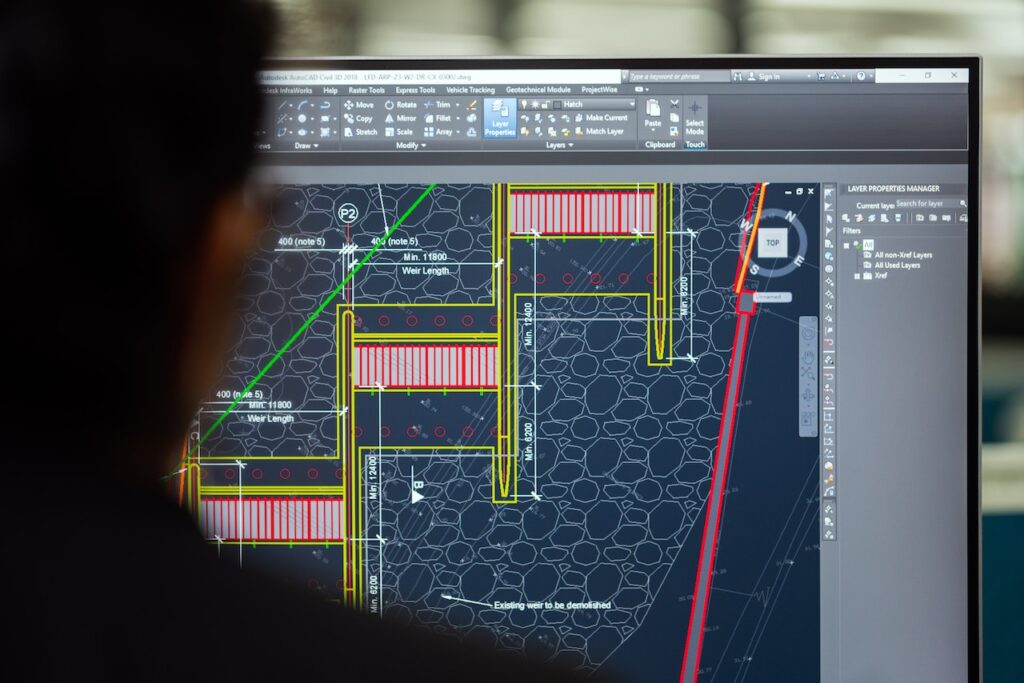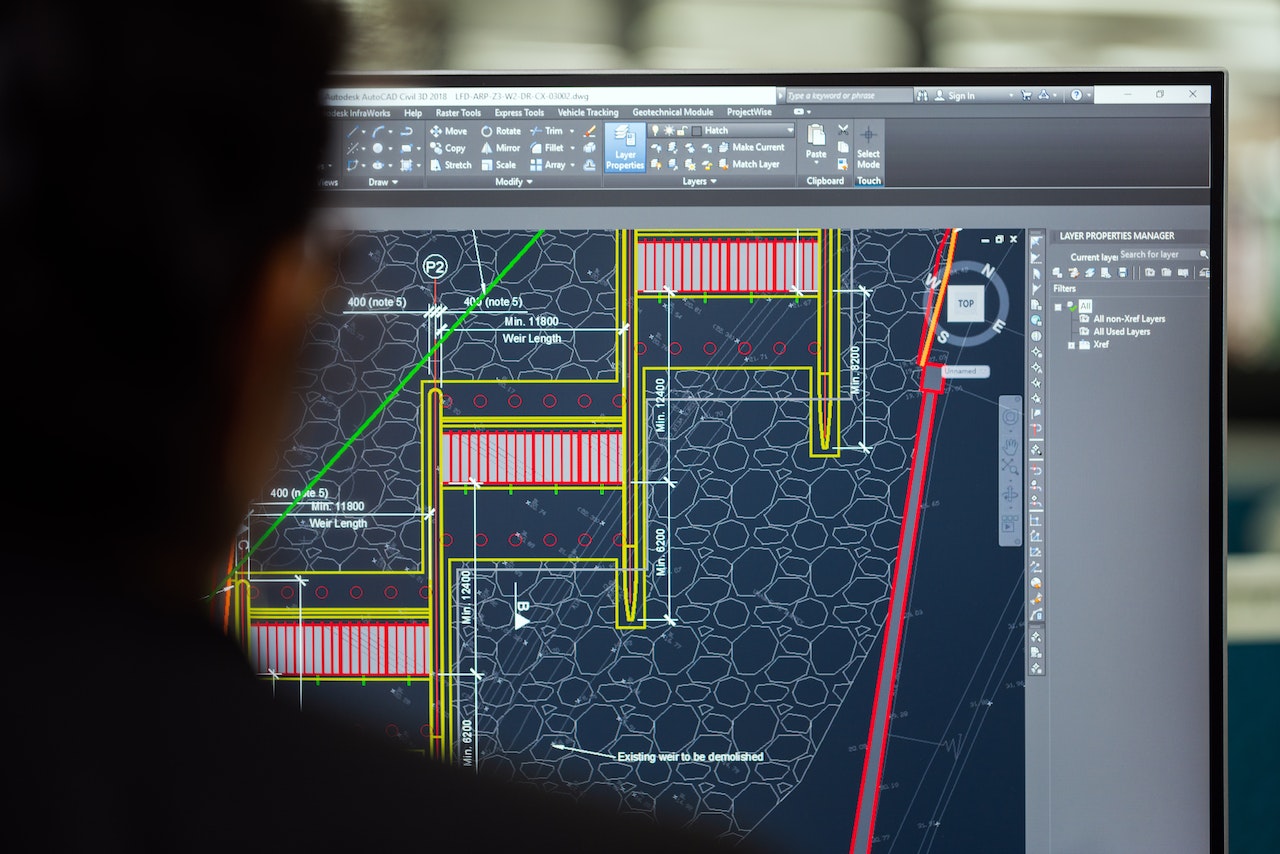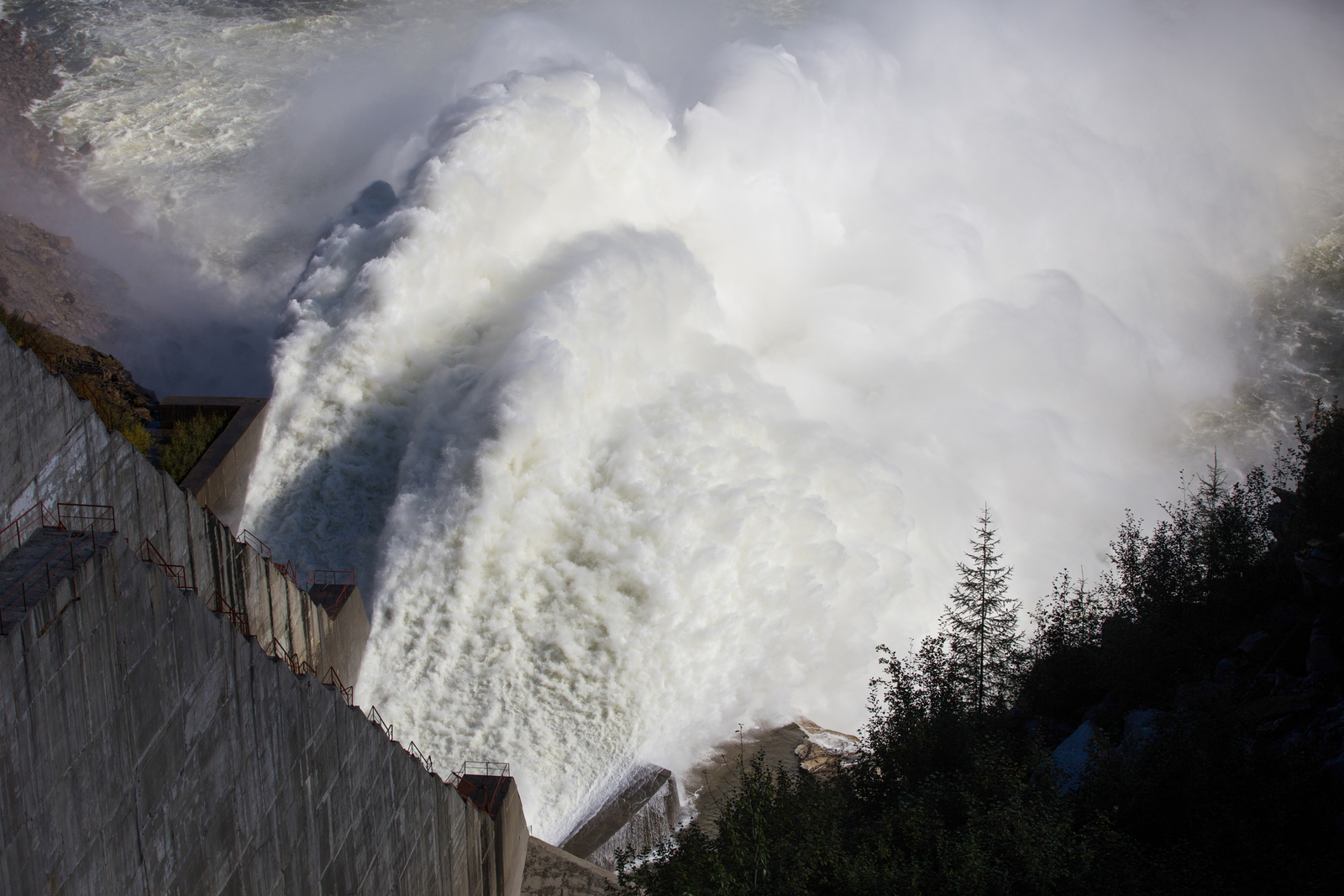
Water resource engineering is a field that plays a crucial role in the management of water resources for various purposes such as irrigation, flood control, and supply of water to urban and rural areas. Water resource engineering involves the design, construction, and management of water systems, infrastructure, and facilities to ensure the effective use of water resources.
The field of water resource engineering encompasses several sub-disciplines such as hydraulic engineering, hydrology, groundwater engineering, irrigation engineering, and environmental engineering. One of the key functions of water resource engineers is to develop solutions that balance human needs with ecological sustainability.
Water systems engineers focus on designing structures such as levees and dams for flood control or improving existing infrastructure for improved efficiency. They also analyze data related to stream flow rates and groundwater levels to determine how best to manage these natural resources for the long-term benefit of society.
Another important aspect of water resource engineering involves planning for future demand for water resources while ensuring efficient management practices are in place. Water resource planners help implement projects that ensure long-term access to clean drinking water through sustainable methods like rainwater harvesting or wastewater reuse systems.
Effective management practices are essential in improving access to clean drinking water while also protecting it from pollutants. Water quality experts work on designing treatment processes that remove impurities from raw water sources before they reach consumers.
They also oversee monitoring programs that test both surface and groundwater sources for pollutants like pathogens or chemicals. Mankind’s demand for sufficient clean fresh-water will only become greater as populations continue to grow worldwide; however this can lead to more problematic environmental issues if not managed correctly via expert planning from professionals within this ever-evolving field known as “Water Resource Engineering.”
Understanding Water Resources Engineering
Water resource engineering is a multidisciplinary field that involves the scientific study of water and its interaction with the environment. This field encompasses a wide range of activities, including water supply systems, flood control, groundwater engineering, hydraulic engineering, and water treatment.
Furthermore, it also includes environmental engineering, hydrology, water management, water resource policy and planning to ensure sustainable water management practices. Groundwater Engineering is an essential component of Water Resources Engineering.
Groundwater accounts for nearly 97% of the world’s freshwater resources and serves as a vital source of drinking water in many regions across the globe. Water Resource Engineers use their knowledge to develop innovative solutions to manage groundwater resources sustainably.
The primary goal is to develop effective strategies for monitoring groundwater levels and rates of extraction while ensuring that they do not negatively impact the environment. Hydraulic Engineering is another critical component of Water Resource Engineering that involves designing and constructing hydraulic structures such as dams and levees.
These structures are essential to manage surface water flow effectively and prevent flooding in low-lying areas during heavy rainfall events. Hydraulic modeling tools play a significant role in designing hydraulic structures that can withstand extreme weather conditions.
Water Treatment is an essential aspect of Water Resource Engineering aimed at improving the quality of drinking water supplied to communities across the globe. Effective treatment processes are required to remove impurities from natural freshwater sources like rivers or lakes before they can be used for human consumption.
Understanding Water Resources Engineering requires comprehensive knowledge covering different sub-disciplines like Groundwater Engineering, Hydraulic Engineering, Environmental Engineering among others. The expertise within this field has been crucial in developing effective strategies to address some of the world’s most pressing issues such as flood control and droughts while promoting sustainable development practices through sustainable innovations like sustainable irrigation engineering practices or watershed management techniques that conserve both energy usage and maintain healthy ecosystems for future generations.
Roles and Responsibilities of a Water Resource Engineer
Water resource engineering is a multidisciplinary field that involves various roles and responsibilities. A water resource engineer is an expert who designs, supervises, implements and manages projects related to water resources.
These professionals work on projects that involve the planning, development, management and protection of water resources like rivers, lakes, wetlands, groundwater aquifers and watersheds. may vary depending on the project they are working on.
However, some of the typical duties may include designing irrigation systems for crop production or managing flood control structures to protect communities from natural disasters like floods. They also design water supply systems for urban areas and manage water treatment plants to ensure safe drinking water.
Environmental engineers within this field also work on projects related to wastewater treatment facilities. Hydrologic modeling is another important aspect of a water resources engineer’s role.
Hydrologic modeling techniques help in predicting how much precipitation can be expected in any given area over time which can then be used in making decisions about developing infrastructure or agriculture practices in that area. Groundwater engineers study the movement of underground watersheds and design solutions that help manage it effectively.
In addition to technical tasks overseen by these experts are other roles where they make critical decisions about policy-making for protecting our natural resources like conducting research on sustainable water management strategies or monitoring regulations related to watershed management policies to protect ecosystems from pollution runoff. Overall, the role of these professionals is critical in ensuring we have clean drinking water for communities while limiting environmental degradation for future generations.
Types of Projects Undertaken by Water Resource Engineers
Water resource engineering encompasses a wide range of projects and tasks, from designing and building water supply systems to managing and protecting water resources. Some of the most common types of projects undertaken by water resource engineers include:
1. Water supply and treatment: Water resource engineers play a critical role in ensuring that communities have access to safe, clean drinking water. They design and build water treatment plants, develop strategies for treating and managing wastewater, and ensure that water supplies meet regulatory standards for quality.
2. Flood control: Flooding can cause significant damage to communities, infrastructure, and natural resources. Water resource engineers work on projects aimed at reducing the risk of flooding, such as designing levees or floodwalls, creating retention ponds or other drainage systems, or implementing zoning policies that limit development in flood-prone areas.
3. Irrigation engineering: Agriculture is one of the largest users of freshwater resources worldwide. Water resource engineers design irrigation systems that maximize crop yields while minimizing water waste and environmental impacts.
This may include developing new technologies for measuring soil moisture or optimizing crop selection based on local environmental conditions. 4. Watershed management: A watershed is an area of land where all the surface water drains into a particular body of water (such as a river or lake).
Water resource engineers work on projects related to watershed management—such as monitoring and analyzing data related to rainfall patterns or runoff—to help protect these important ecosystems. 5. Environmental engineering: Many aspects of environmental engineering are closely related to water resources management.
For example, some environmental engineers work on projects aimed at restoring degraded aquatic ecosystems or mitigating the effects of pollution on aquatic environments. Overall, the field of water resource engineering is broad and diverse, covering everything from designing large-scale infrastructure projects to developing innovative conservation strategies at the community level.
As such, there are many different types of jobs available within this field—from hydraulic engineers who focus on designing pipes and pumps to hydrologists who specialize in analyzing water cycle patterns and predicting the behavior of water resources. Regardless of their specialty area, water resource engineers play a critical role in ensuring that our most precious natural resource is managed sustainably and responsibly for future generations.
Societies and Professional Organizations for Water Resource Engineers
Water resource engineers may find it helpful to join one or more professional organizations in order to network with other professionals in their field, stay up-to-date on industry news and advancements, and access resources that may aid them in their careers. One such organization is the American Society of Civil Engineers (ASCE), which has a specific Water Resources Institute.
This institute focuses on issues related to water infrastructure, flood control, and watershed management. The ASCE also offers continuing education opportunities for members.
Another option for water resource engineers is the American Water Works Association (AWWA), which has a focus on water distribution, treatment, conservation, and supply systems. The AWWA also offers certification programs that can help engineers demonstrate their expertise in areas such as groundwater engineering or environmental engineering.
For those interested in sustainable water management practices, the Alliance for Water Efficiency (AWE) is a non-profit organization that promotes the efficient use of water through advocacy and education. AWE works with policymakers, businesses, and individuals to develop strategies for reducing water waste while still meeting demand.
Joining a professional organization can be a valuable step for any water resource engineer looking to advance their career and become more involved in their industry. These organizations offer opportunities to connect with other professionals working in areas such as hydraulic engineering or irrigation engineering while also providing access to resources that can enhance skills related to hydrologic modeling or water resource planning.
Challenges and Innovations in Water Resources Engineering
The field of water resource engineering faces numerous challenges in ensuring the availability and quality of water for various purposes. One of the major challenges is the increasing demand for water due to population growth, urbanization, and industrialization. This puts pressure on existing water supply systems, which may not be able to meet the rising demand.
Water resource engineers are tasked with finding innovative solutions to this challenge such as developing sustainable water management practices that increase efficiency in water usage and reduce wastage. Another challenge facing modern-day water resource engineering is climate change, which presents an uncertain future for water resources.
The effects of climate change are felt through extreme weather events such as floods and droughts that affect the quantity and quality of available water resources. Water resource engineers must work with policymakers and stakeholders in implementing adaptive strategies for managing these impacts.
Some innovative approaches that have been proposed include hydrologic modeling techniques that take into account future climate scenarios when designing infrastructure projects. The deterioration of existing water infrastructure poses a significant challenge to maintaining a functional water supply system.
Aging pipelines and treatment facilities can compromise the quality of treated drinking water while reducing pipeline capacity resulting in inadequate distribution systems leading to low supply volumes or inadequate pressure levels., Water resource engineers must develop effective methods for monitoring aging infrastructure’s condition while designing new ones using more robust materials with increased lifetimes that can withstand harsh environmental conditions effectively. Effective land use planning techniques combined with sustainable development policies can help address some of these challenges faced by modern-day hydraulic engineers concerning freshwater resources management issues like flood control, groundwater contamination prevention measures, irrigation systems design innovations & maintenance programs development initiatives aimed respectively at ensuring adequate access-quality freshwater supplies throughout arid regions worldwide!
Job Opportunities in Water Resources Engineering
Water resource engineering is a promising field with numerous job opportunities for those pursuing a career in this area.
The scope of work in water resources engineering can vary widely depending on the employer and the region. However, there are a few common job titles that graduates with degrees in water resources engineering can expect to find.
One of the most sought-after jobs for water resource engineers is working on water infrastructure projects. This can include designing, constructing and maintaining large-scale water supply systems, stormwater drainage systems, or wastewater treatment plants.
These projects may involve aspects such as flood control, hydraulic engineering or sustainable water management practices to ensure that the infrastructure built is resilient and long-lasting. Another area where water resource engineers are often employed is in watershed management.
Watershed management involves studying how land use practices affect the quality and quantity of surface and groundwater resources within a particular region. Water resource engineers may be responsible for developing models to project future changes to watersheds or designing solutions such as green infrastructure to reduce erosion and improve water quality.
Environmental engineering firms also employ many people with skills related to hydrology, hydrologic modeling, groundwater engineering or irrigation engineering. These professionals work on evaluating potential environmental impacts from projects that require permits from government agencies like the EPA or Army Corps of Engineers.
Given the increasing concerns about climate change and sustainable development practices globally, there continues to be high demand for skilled professionals in Water Resources Engineering across numerous sectors including government agencies at all levels; consulting firms; non-governmental organizations (NGOs); academic institutions; research centers among others. Within these sectors are multiple areas where individuals with appropriate expertise could contribute towards important projects aimed at conserving vital natural resources while ensuring their availability for human consumption both now and into the future.
Conclusion and Future Outlook for Water Resources Engineering.
Conclusion: Water resource engineering is a critical aspect of ensuring the sustainable use of water resources. It is a highly interdisciplinary field that involves many disciplines such as hydrology, environmental engineering, and hydraulic engineering.
Water resource engineers are responsible for designing and implementing solutions for water supply systems, flood control, irrigation engineering, and other areas related to water management. Future Outlook:
The future outlook for water resource engineering is positive. As we move towards more sustainable practices in managing our natural resources, there will be an increased demand for professionals trained in this field.
The growing concern over climate change and its impact on our environment has catalyzed efforts towards sustainable water management practices. One area that will continue to grow in importance is the development of innovative technologies such as hydrologic modeling and smart infrastructure systems that can improve the efficiency and effectiveness of water distribution networks.
Additionally, there will be a greater focus on conservation efforts to ensure the long-term sustainability of our water resources. Water resource policy will also play a significant role in shaping the future outlook for the industry.
Governments at all levels are recognizing the need to prioritize investment in infrastructure projects related to water systems engineering, flood control measures, groundwater management, watershed management, and other areas related to ensuring effective management of our natural resources. Overall, as we continue to face environmental challenges related to climate change and population growth pressures on limited freshwater resources worldwide, it is essential that we continue investing in research and innovation for sustainable solutions toward efficient use of existing supplies while protecting ecosystem integrity.


